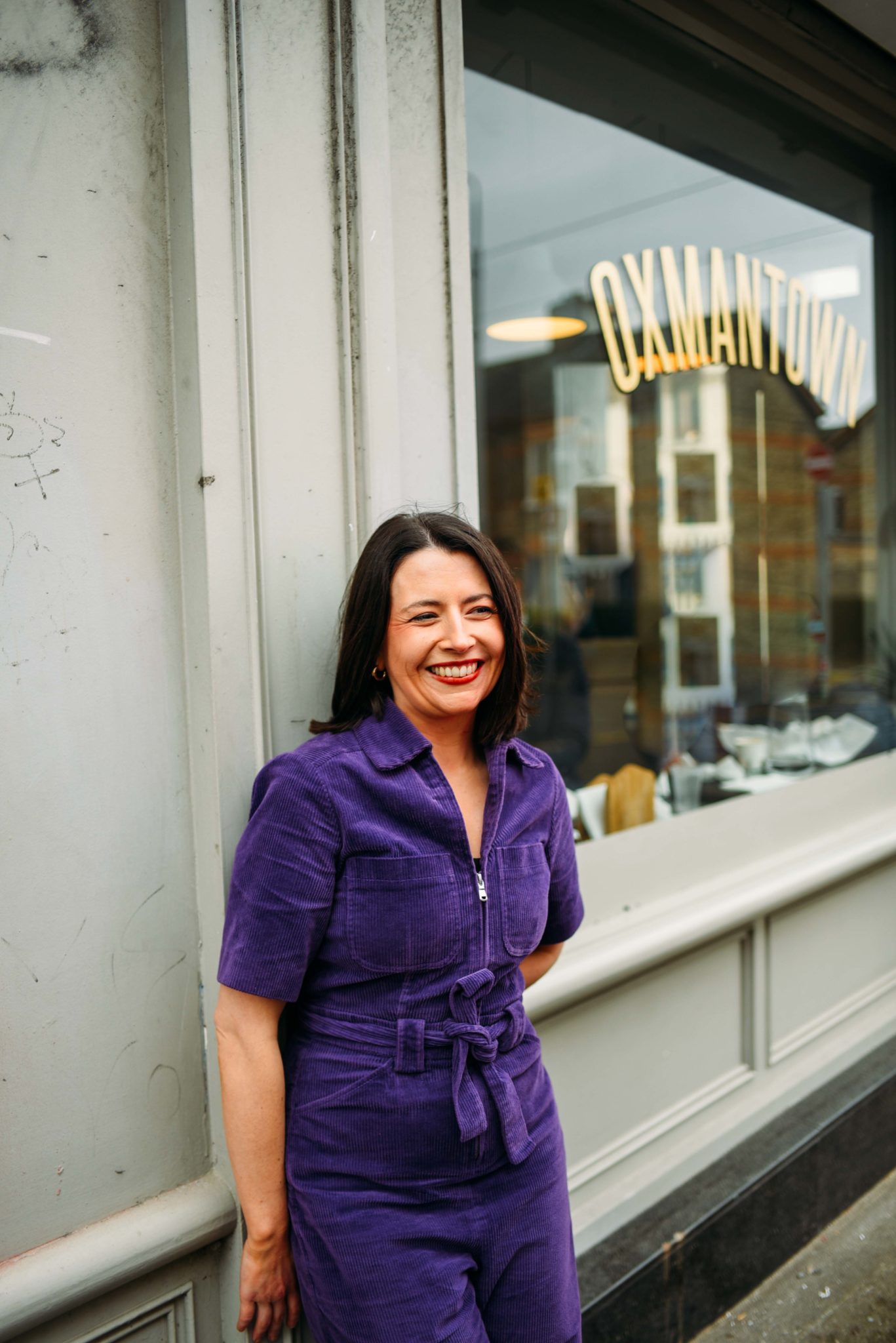- Culture
- 03 Apr 24
Rebecca Ivory: "My characters are a bit cringe and I hope it makes people feel comforted"

Irish author Rebecca Ivory on her compelling short story collection Free Therapy, which explores all manner of painful social situations.
Irish people often don’t say what they are actually thinking. I’m sure we’ve all had encounters with candid Americans who shocked us, or called a French person “rude” for saying exactly what was on their mind.
We on the other hand resist directness – so what happens when someone confronts us with our evasiveness?
“I think we’re not necessarily averse to vulnerability,” says Irish author Rebecca Ivory, who addresses the theme in her debut short story collection, Free Therapy.
“But I think we’re definitely averse to being direct. We have a really hard time actually communicating how we really feel about things. I know myself as well, even in some relationships, I could go years without saying what I need to say to a person, and it might be such a minor misunderstanding. I’ll never say it, but it will actually inform the whole friendship or relationship. In Ireland, we’re very good at martyrdom.”
The stories in Free Therapy certainly make the reader uncomfortable. “They’re about people who keep making the same mistakes over and over, and they’re trying really hard to change,” says Ivory. “But fundamentally, they just aren’t able, because I don’t think they’re willing to do the essential work. That requires vulnerability and the realisation they’re just like everyone else.”
One story in Free Therapy which reveals Ivory’s flair for insight into the human condition is ‘Work And Charity’. The story centres around a young female journalist assigned to investigate chuggers. As part of her research, she signs up to work for a non-profit and sleeps with her American co-worker. She does this not out of an active desire to be intimate, but an evasiveness in saying no to his advances. It’s a searing tale that identifies something essential about sexual politics that cannot be captured in MeToo slogans or sound bites.
 Rebecca Ivory. Copyright Miguel Ruiz.
Rebecca Ivory. Copyright Miguel Ruiz.“Sometimes people feel an entitlement to another person’s body, and I think the other person might feel… an obligation,” says Ivory. “In that situation, that’s a person who feels too socially awkward, and would rather just dissociate than pull away and say, ‘Oh, I actually would rather go home.’ It’s not as if the guy she slept with deliberately went out of his way to hurt her, or wanted to make her feel bad. In his mind, it was a really good sexual experience. He’s learned stuff from watching porn as well, rather than actual human experiences he’s had with sexual partners.”
But the brilliance of the story is that there are no heroes or villains.
“She didn’t really want to get to know him,” says Ivory. “He was trying to be vulnerable with her, he was trying to tell her about his life, and she was so mortified that he was being emotionally vulnerable. So you can’t win with this character, because in some ways she wants real connection.”
It’s one of a string of vital short stories that make up the blistering anthology. “I have lived very comfortably inside these characters’ heads for the last five years, so I’m very comfortable with it,” says Ivory. “But perhaps if you’re just encountering them, it’s really uncomfortable. I definitely wanted to write characters who weren’t slick and weren’t necessarily strong. I’m really interested in weak characters.
“That’s my only interest, really – the way people think. I’m not actually great at detailing a room, I think that’s my weakness. Whereas I really enjoy interiority. I like to have ownership over lots of people’s minds.”
Ivory suggests short stories can deliver brutal honesty. “In a novel, there are so many details to keep track of, you almost need a notice board,” she says. “Whereas in a short story, it’s much easier and can sometimes ring a bit truer.”
Free Therapy also tackles other major subjects in Irish society, including the housing crisis. “It annoys me in Irish TV shows that everyone can somehow afford to live in their own apartment,” says Ivory. “It’s just this thing that people ignore when they’re writing, because they’re like, ‘It’s much nicer to have them live on their own.’ Whereas I don’t think I have the imagination for that. It’s actually important to show people in crap situations.”
From tenants living with black mould, to students commuting unreasonable distances for college, to people who feel lucky to be living in their friend’s granny’s house that comes complete with rosary beads, net curtains and an avocado bathtub, Free Therapy takes readers into the homes of modern Irish people. But why does Ivory take us through this journey of emotional realism?
“I love when people tell me embarrassing stories because it makes me feel less of a social freak,” she replies. “My characters are a bit cringe and I hope it makes people feel comforted. I think everyone feels that way. That’s why people love to read as well, because it makes you feel a little less lonely or strange.”
• Free Therapy is out now.
Read Rebecca Ivory's interview and more in the latest issue of Hot Press:










